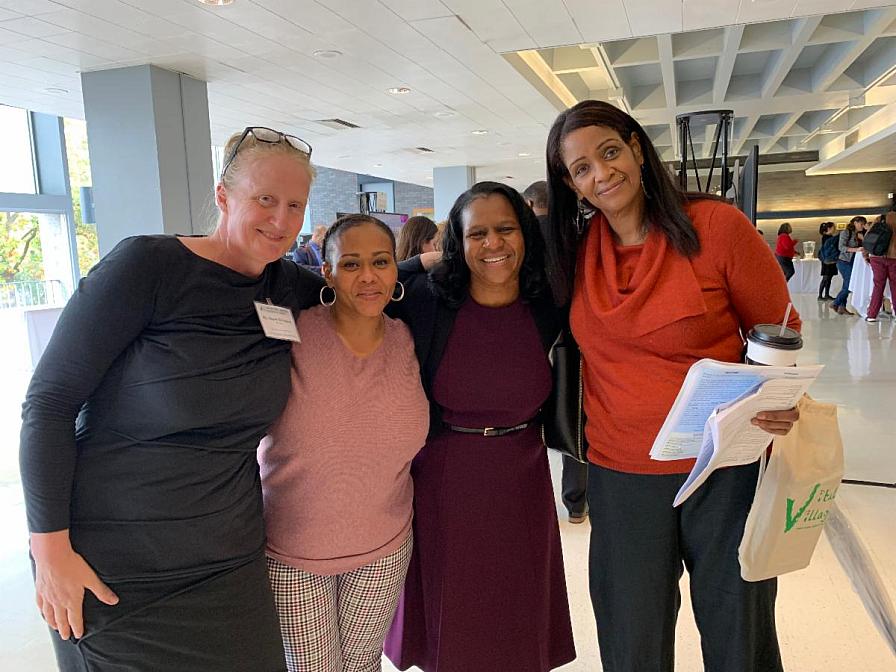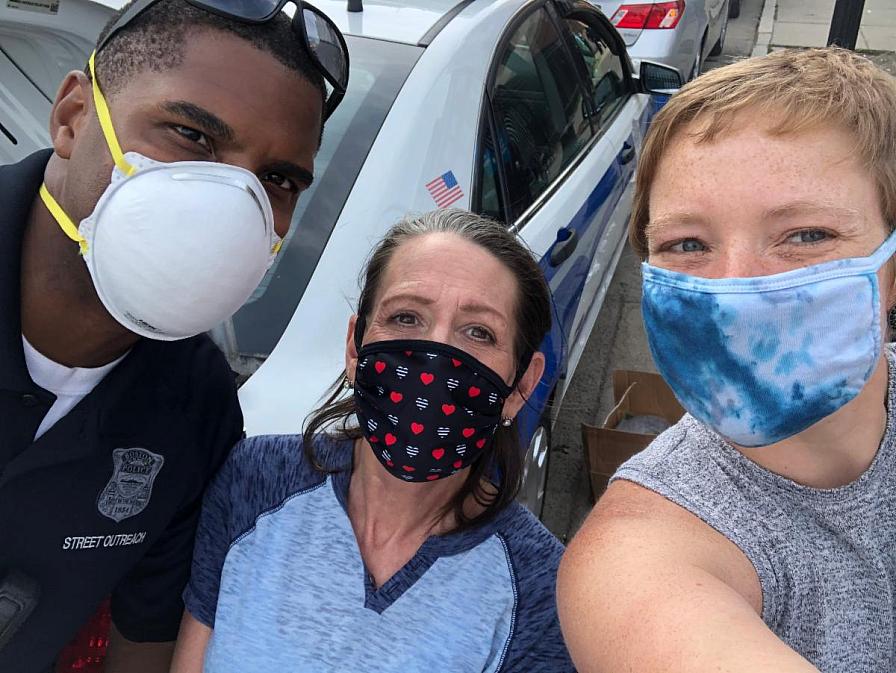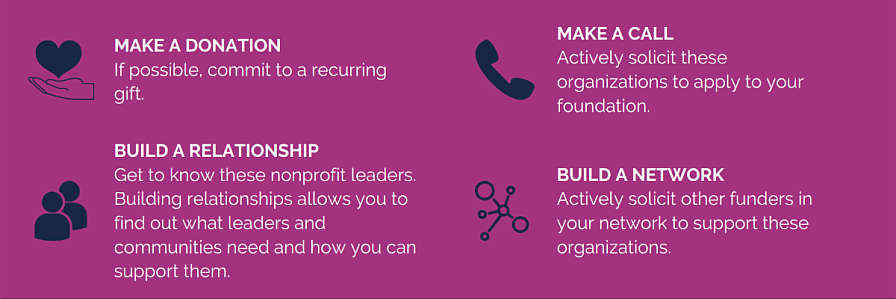

This is the fifth in a series of stories capturing reflections from the SIF team and the 2020 Innovators to mark their graduation from the Social Innovator Accelerator. Read the fourth installment of the blog series.
Vital Village Networks (VVN)

Because of the organization’s leadership in building the capacity of communities to promote child wellbeing and advance equity through coalition building, leadership development, research, data sharing, and advocacy, Vital Village Networks (VVN) experienced an unprecedented demand to support equitable community health and resilience during the pandemic.
COVID-19 has increased financial and material hardships for families, including food and housing insecurity; disrupted access to enrichment, childcare, and educational opportunities; disrupted daily routines and schedules; and increased stress during critical periods, such as pregnancy. As a result, the demand for Vital Village Networks existing community-led programs, which address food and housing insecurity using mobile technology and resource mapping, increased.
The VVN data dashboard of housing and food resource navigation needed to adapt to include new policies and services available during COVID-19, requiring more regular and real-time updates, data gathering and maintenance. VVN’s work with community partners, particularly those serving families with young children and expectant parents, had increased demand for timely curated resources and services.
Executive Director Renée Boynton-Jarett shares that “Boston residents who live in the communities they serve are often overlooked as designers of community solutions. During the pandemic, VVN has worked intensively to ensure that community residents are fully incorporated in co-designing the solutions needed to respond to COVID-19 and address the longstanding institutional and structural inequities that worsened its impact.”
The organization had record engagement in advocacy and policy work over the past year. Renée reflects that the pandemic brought more demands on leaders, especially leaders of color working in communities of color, but did not bring the much-needed operational support to support the infrastructure needed to do that work.
As a nonprofit based at a safety net hospital, the instinct is towards service and doing more, Renée now reflects that it was “crucial” that she and her team proactively nurture a wellness culture within the organization, allowing staff to step back and modify work, and providing time for healing and restoration during this pandemic.
Get to know Renée and Vital Village Networks and learn more about how you can support them!
Police Assisted Addiction and Recovery Initiative (PAARI)

At the Police Assisted Addiction and Recovery Initiative (PAARI), Executive Director Allie Hunter faced a similar challenge. The organization provides police with the tools they need to help prevent overdose deaths and to get those dealing with addiction into treatment.
The pandemic brought with it the highest levels of fatal opioid overdoses, with a 30% increase nationally. Treatment became more difficult to access, and the populations PAARI serves are more vulnerable to exposure to COVID.
In March of 2020, many people were being released from incarceration because of COVID. Allie shared that those who are most at-risk for fatal overdoses are individuals who are in their first week of being released from custody. Medicaid benefits do not get reinstated for 30 days upon release, leaving individuals with no coverage amid a pandemic.
PAARI quickly built up a new program to respond to these needs, including advocacy around Medicaid coverage. As a result, “our work was simultaneously really important and really challenging” says Allie. The PAARI team have personal experiences and close ties to opioid addiction, so the organization was especially mindful of the vicarious trauma they were experiencing.
As a result of the demand for their work and the need to care for their own team, the organization became more strategic, leaning into its role as a capacity builder rather than direct service provider, allowing the organization to have a more sustainable and scalable model.
Additionally, PAARI took an intentional approach towards caring for its staff and honoring them as complete people, for example by inviting staff to share about their personal connections to addiction at staff meetings.
Connect with PAARI and learn more about how you can support them!
SIF has made a commitment to support funders in allocating resources more equitably. Doing so includes acknowledging inequities in the structures of philanthropy, which result in only 10% of foundation grants going to communities of color and unrestricted assets of organizations led by leaders of color being 76% smaller than those led by whites. Throughout this series, you will see opportunities to direct resources towards closing that gap by supporting grassroots organizations and organizations led by people of color. We invite you to consider the following commitments:


 Social Innovation Forum
Social Innovation Forum